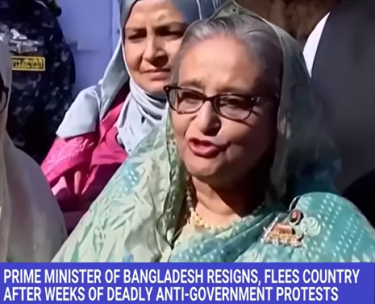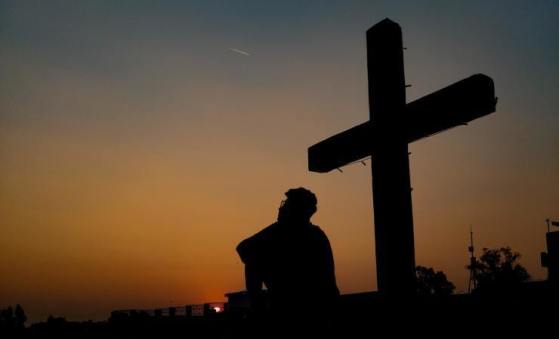
Bangladesh has plunged into political crisis as Prime Minister Sheikh Hasina resigned and fled the country on Monday, August 5, following weeks of violent protests that have left hundreds dead. The unrest, which began as student demonstrations against a controversial job quota system, escalated into a widespread movement demanding the end of Hasina's 15-year rule.
Army chief General Waker-uz-Zaman announced that he was "taking responsibility" and that an interim government would be formed. In an address to the nation, he stated, "The country has suffered a lot, the economy has been hit, many people have been killed -- it is time to stop the violence."
The protests began on 2 July when students took to the streets of Dhaka to demand the cancellation of a quota system in civil service recruitment. The system, which reserves 56% of jobs for various categories, was deemed discriminatory by the protesters. The demonstrations quickly spread across the country, with students staging sit-ins at key intersections and disrupting traffic.
The situation escalated on 15 July when activists from the ruling Awami League's student wing, the Bangladesh Chhatra League (BCL), attacked anti-quota protesters at Dhaka University and Dhaka Medical College Hospital. This sparked widespread clashes, with ordinary students fighting back and driving BCL members out of university campuses.
As violence spread, the death toll mounted. By 19 July, at least 66 people had been killed in clashes involving protesters and police. The government declared a nighttime curfew and deployed the army to maintain order. However, the protests continued to intensify, with demonstrators calling for Hasina's resignation and the formation of a "national government" headed by a person "acceptable to all."
On Sunday, 5 August, tens of thousands of people defied the curfew to converge on Dhaka's centre. Crowds stormed Hasina's official residence, prompting her to hand her resignation letter to President Mohammed Shahabuddin. The 76-year-old prime minister, accompanied by her younger sister Sheikh Rehana, then fled to India on a military aircraft.
Upon arrival at Hindon Air Force base near Delhi, Hasina met with Indian National Security Advisor Ajit Doval. Reports indicate she is likely to seek political asylum in the United Kingdom.
The sudden ousting of Hasina, who had been a key ally for India, has raised concerns in New Delhi. Indian Prime Minister Narendra Modi chaired an emergency meeting of the Cabinet Committee on Security to assess the situation. The Indian government is reportedly worried that the popular anger against Hasina may also affect Delhi, which was seen as a trusted supporter of the Awami League.
International reactions to the crisis have been cautious. The United States called on all sides to "refrain from further violence," while UN Secretary-General Antonio Guterres urged a "peaceful, orderly and democratic transition."
As Bangladesh grapples with this political upheaval, the Church of Bangladesh has issued an urgent call for global prayer. Most Rev. Samuel S. Mankhin, Moderator and Bishop of Dhaka, appealed for prayers for peace, stability, and wisdom for government leaders.
The church's letter highlighted the severe difficulties faced by citizens, including restricted communication and internet access. It called for prayers for the safety of all Bangladeshis, the restoration of connectivity, and healing for those who have lost loved ones.
As the country awaits the formation of a new government, student protest leaders have expressed their desire for Nobel Peace laureate Muhammad Yunus to serve as chief advisor of an interim administration. Army chief General Waker-uz-Zaman is set to meet with these leaders to discuss the path forward. The Bangladeshi parliament is expected to be dissolved today, 6 August, marking the end of an era in the country's politics.




